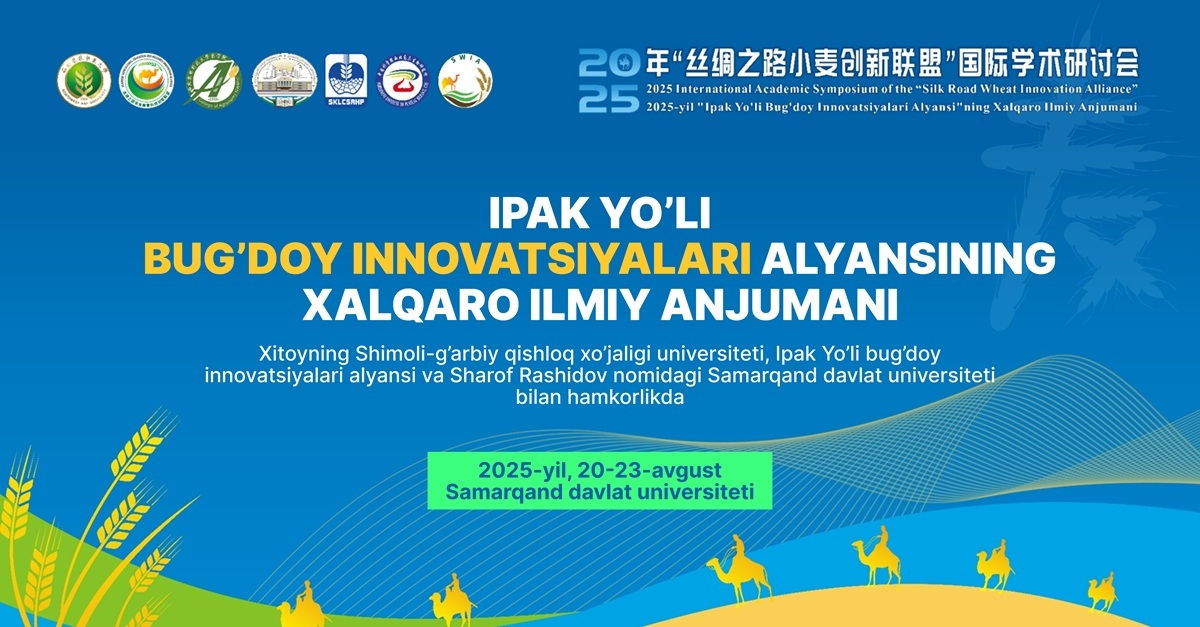International Scientific Conference of the Silk Road Wheat Innovation Alliance

In cooperation with the Northwest Agriculture and Forestry University of the People’s Republic of China, the Silk Road Wheat Innovation Alliance, and Samarkand State University, the International Scientific Conference of the “Silk Road Wheat Innovation Alliance” will be held at Samarkand State University on August 20–23, 2025.
The conference will bring together about 25 leading professors, researchers, and specialists in wheat studies from a number of prestigious higher education institutions and research centers in China. In particular, scientists from the Chinese Academy of Sciences, Dingxi Academy of Agricultural Sciences, Henan University of Technology, Ningxia University, and Northwest Agriculture and Forestry University will present reports on current wheat research and the latest achievements in this field.
In addition, scientists from the Institute of Plant Genetics and Breeding of the Siberian Branch of the Russian Academy of Sciences, as well as from the Arid Agriculture University of Pakistan, will also take part in the event.
The scientific-practical conference will discuss the results of research conducted in China, Russia, and Central Asian countries on the use of genetic engineering methods to develop new wheat varieties resistant to climate change and drought, increase productivity, and design integrated methods of combating wheat diseases and pests.
The main goal is to enhance the level of wheat research in the Silk Road countries and to further strengthen regional food security through experience exchange.
At the opening ceremony, Rector of Samarkand State University Prof. Rustam Khalmuradov and Vice-President of Northwest Agriculture and Forestry University Prof. Fang Yulin will sign an agreement on establishing the “China–Uzbekistan Center for Crop Breeding and Seed Production” at Samarkand State University. A symbolic inauguration ceremony of the center will also be held during the event.
This initiative aims to apply the latest scientific achievements in wheat and other crop cultivation to the similar ecological conditions of both countries, thereby increasing yields and ensuring regional food security.
The center will focus on developing new varieties of wheat and other agricultural crops adapted to soil salinity, drought, and climate change in Uzbekistan, strengthening scientific research in this field, and jointly training a new generation of specialists in crop breeding and seed production.

